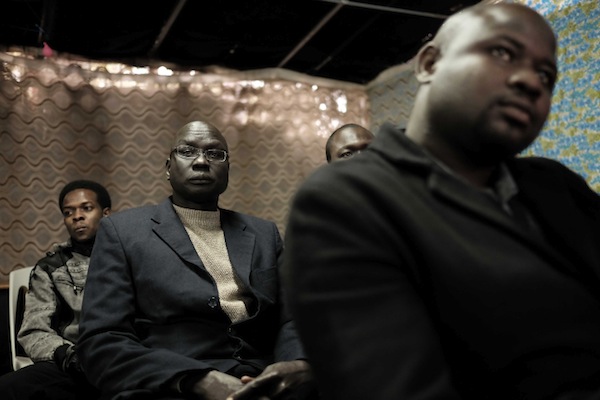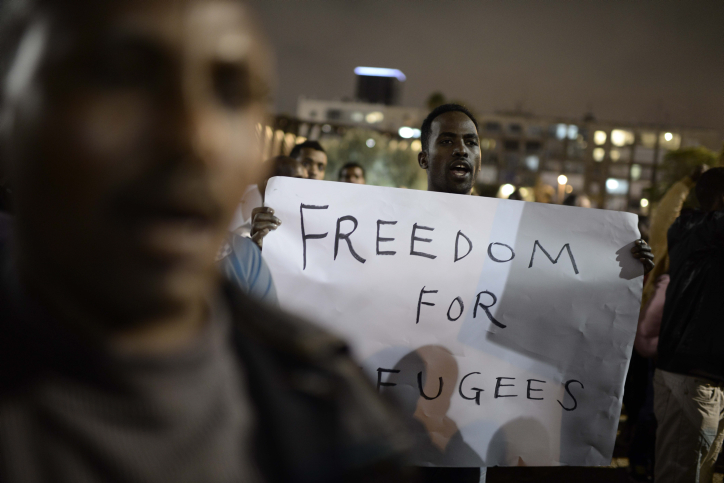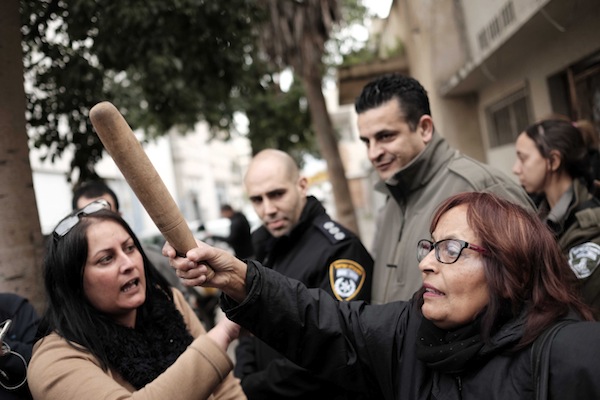The Israeli government continues to pass discriminatory laws against African asylum seekers, turning the Israeli public against us. But how could it be that Jews have forgotten the word ‘refugee?’
By Monim Haroon

A new law that went into effect starting on May 1 stipulates that the state will take 20 percent of asylum seekers’ monthly salaries, and 16 percent from our employers, putting the money into a fund that will only become available to us the moment we board a plane that flies us away from Israel. If we refuse to leave the country, the Administration of Border Crossings, Population and Immigration will confiscate the money.
This, of course, is part and parcel of the government’s policy to push us refugees to leave the country. One way to do so is to take the money we earn through back breaking labor. The state also refuses to respond to our asylum requests, jails us indefinitely, or places us in an open detention center.
The policies against us stem from the fact that the state continuously labels us “infiltrators,” rather than asylum seekers or refugees, in order to make the Israeli public grow weary of us. That way it will have a much easier time squeezing us out. There is no doubt that this latest punishment will make our lives difficult, but it does not get at the core of what bothers us, and certainly is not the top priority in out struggle as asylum seekers. Our struggle is to be viewed as human beings.
I am frightened by the question of whether the Jewish people have succeeded in disconnecting from their own history. How could Jews have forgotten the word “refugee?” How can a nation that has been forced to flee its home time after time refuse to grant temporary asylum to those who flee their homes?

It is obvious that the majority of the Israeli public does not know why Sudanese and Eritreans are here, or more precisely — there are those who want the Israeli public to view as as foreign workers and infiltrators. Thus the question becomes: how does one define a refugee? Is a person who is persecuted for her religion or ethnic group, and survives genocide, not a refugee? Is a person whose village was burned and whose family members were killed in front of his eyes because of the color of their skin not a refugee? A person who faced brutal violence in her home country, including rape and torture, is not a refugee?
Believe me, it is not fun to leave one’s homeland and family to look for asylum in a place he does not know. A person can do this only if she has come to the conclusion that a future in a foreign place is better than certain death in her home country.

The region in Darfur from which I fled was attacked with chemical weapons this past year by the Sudanese government, a government that regularly uses chemical weapons on its own citizens. Three days ago, the area I was born and raised in suffered repeated attacks, killing 22 people, most of them children and women. Perhaps for the rest of the world, 22 people is just another number in a country they cannot place on a map. But for me, this is family. These are my brothers, sisters, and cousins. This is my father, my uncle, my aunt. There are many others like me in Israel, whose families were attacked this week, who woke up this morning without knowing whether their family members were among the dead. They travel with you in buses, they’ll wash your dishes at the restaurant you eat at tomorrow night, they clean the streets you walk on. And this whole time, they are in constant fear for the lives of their loved ones.
We have understood that according to the Israeli government, we are unwanted here. But we have nowhere to go. No, there is no way to compare what the Israeli government does to us with the crimes against humanity committed by the Sudanese government every day. But at the very least, treat as human beings until we can finally go back to the place we all want to return to. Home.
Monim Haroon is a refugee from Darfur and an activist for human rights in Sudan. This post was originally published in Hebrew on Local Call.
